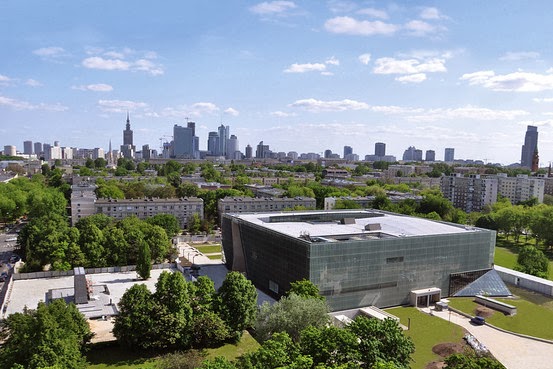Museums used to be hermetic, both in space and in mind. Little light came in through the columns and curtains, and little came out. But things are changing.
Last week I finally made it to the Museum aan de Stroom (MAS) in Antwerp. Housed in a surreal stack of brick and curved glass panels, it combines the previous collections of the maritime, ethnography and folklore museums. Once you enter it is hard to decide what is more spectacular: viewing the inside or viewing the outside. And why shouldn't museums compete with the outside world?
Speaking of which - the new Museum of the History of Polish Jews in Warsaw. Although set just in front of the memorial where chancellor Willy Brandt fell to his knees in 1970 in recognition of Germany's responsibility for the war, it refuses to be another Holocaust museum. Instead, it traces the entire history of Jews in Poland, from a millenium ago until today.
The building - seemingly simple from outside yet curved and complex on the inside - reflects this openess. What could be better for the new museums than visual and intellectual osmosis? Let the sunshine in.















